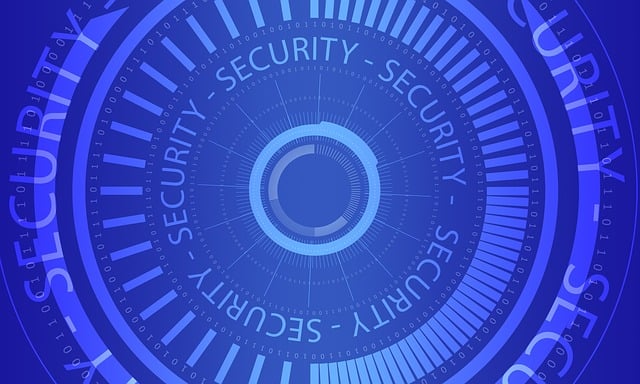In today's digital age, where data protection is paramount, Cyber Insurance for Data Protection acts as a crucial safety net for IT companies. This specialized coverage tackles unique risks from cybersecurity breaches and data loss, providing financial safeguards against evolving cyber threats. By understanding and strategically implementing this insurance, businesses can protect operations and sensitive information, ensuring continuity despite increasing cyber risks. Key components include incident response services, business interruption coverage, and crisis management for comprehensive protection against data breaches, financial losses, and reputational damage. Choosing the right provider is vital; consider unique needs, assess risks like data breaches and ransomware attacks, evaluate provider reputation, and review policy flexibility and claims handling processes.
In today’s digital era, where data is a valuable asset, IT companies face unprecedented cyber risks. This comprehensive guide delves into cyber insurance as a crucial strategy for data protection. We explore the rising importance of safeguarding sensitive information in an increasingly interconnected world. From understanding common cyber threats to deciphering policy components and choosing providers, this article equips IT businesses with essential knowledge to navigate the complex landscape of cyber insurance for data protection.
Understanding Cyber Insurance: A Comprehensive Guide for IT Companies

In today’s digital era, where data is a valuable asset, Cyber Insurance for Data Protection has become an indispensable tool for IT companies. This specialized form of insurance caters to the unique risks associated with cybersecurity breaches and data loss, offering financial protection against potential threats. By understanding cyber insurance thoroughly, IT businesses can make informed decisions to safeguard their operations and sensitive information.
Cyber insurance provides coverage for various incidents such as data breaches, ransomware attacks, and business interruption caused by cyber events. It helps companies recover financially and regain control after a cyber incident, allowing them to continue their operations seamlessly. With the ever-evolving landscape of cyber threats, having comprehensive cyber insurance is crucial to mitigate risks and ensure business continuity.
The Rising Need for Data Protection in the Digital Age

In the digital age, data has become the lifeblood of businesses, particularly IT companies that rely heavily on information technology infrastructure and systems. This increasing reliance on digital technologies has also significantly heightened the risk of cyber threats and data breaches. As such, the need for robust data protection measures, underpinned by specialized cyber insurance for IT companies, has never been more pressing.
The value of data is immense, encompassing customer information, intellectual property, financial records, and proprietary algorithms. A data breach can lead to severe consequences, including financial losses, reputational damage, legal liabilities, and disrupted business operations. Cybercriminals employ sophisticated techniques such as phishing attacks, ransomware, and malware to exploit vulnerabilities in IT systems, making it imperative for companies to safeguard their digital assets through comprehensive cyber insurance coverage tailored to their unique risks.
Common Cyber Risks and Threats to IT Businesses

In today’s digital era, IT companies deal with a myriad of cyber risks and threats that can significantly impact their operations and data protection. Common Cyber Risks include data breaches, where unauthorized access results in the theft or exposure of sensitive customer, financial, or intellectual property data. Malware attacks, such as ransomware, can paralyze systems, disrupt services, and lead to substantial financial losses. Phishing scams and social engineering tactics target employees, aiming to gain unauthorized access or extract confidential information. Furthermore, business email compromise (BEC) attacks manipulate internal communications, causing significant financial harm.
Beyond these threats, IT companies also face risks from supply chain vulnerabilities, where third-party software or hardware flaws can expose their systems. Distributed Denial of Service (DDoS) attacks overwhelm networks and servers, causing service disruptions. As technology advances, so do the tactics of cybercriminals, making it crucial for IT businesses to invest in robust Cyber Insurance for Data Protection as a key component of their risk management strategy.
Key Components of a Cyber Insurance Policy

A comprehensive Cyber Insurance policy for IT companies goes beyond basic coverage. It must include robust data protection measures to safeguard against increasingly sophisticated cyber threats. These protections extend to not just prevention, but also detection and response strategies. Data breaches can be devastating for businesses, leading to financial losses, reputational damage, and regulatory fines. Therefore, a key component of any Cyber Insurance policy is the inclusion of incident response services, which help companies contain breaches, investigate causes, and mitigate potential harm.
Beyond data protection, these policies should also cover business interruption and loss of income due to cyber attacks. This ensures that even if operations are halted during an attack, the company can continue to meet its financial obligations. Additionally, coverage for crisis management and public relations services is crucial for repairing damaged reputations and maintaining customer trust following a security breach.
How to Choose the Right Cyber Insurance Provider

Choosing the right cyber insurance provider is a crucial step in safeguarding your IT company’s data protection and ensuring business continuity. When selecting a provider, start by understanding your organization’s unique needs. Assess the types of cyber risks your company faces, such as data breaches, ransomware attacks, or business interruption. This self-evaluation will help you identify the coverage limits and exclusions that are most relevant to your operations.
Next, consider the provider’s reputation and expertise in the field. Look for companies with a solid track record and specialized knowledge of cyber risks. Check their customer reviews, claims handling processes, and the depth of their risk assessment services. Additionally, ensure they offer flexible policies that align with your company’s growth and changing needs. Regularly reviewing and updating your cyber insurance policy is essential to maintaining adequate protection for your valuable data assets.
Real-World Examples: Successful Cyber Insurance Claims and Their Impact

In recent years, several high-profile data breaches and cyberattacks have underscored the critical need for robust cyber insurance for data protection. These real-world examples have shown that even the largest organizations are vulnerable to digital threats. For instance, the 2017 Equifax breach exposed sensitive information of nearly 148 million people, leading to significant financial losses and legal repercussions. Similarly, the 2016 attack on Uber resulted in a data breach that compromised the personal information of 57 million users and 600,000 drivers.
Successful cyber insurance claims have had profound impacts on affected companies. In many cases, these policies have helped to mitigate financial losses, cover legal fees associated with investigations and settlements, and facilitate faster recovery times. By providing a safety net against the substantial costs of responding to and repairing the damage caused by cyberattacks, cyber insurance for data protection is becoming an indispensable tool for IT companies looking to safeguard their digital assets and maintain operational continuity.
